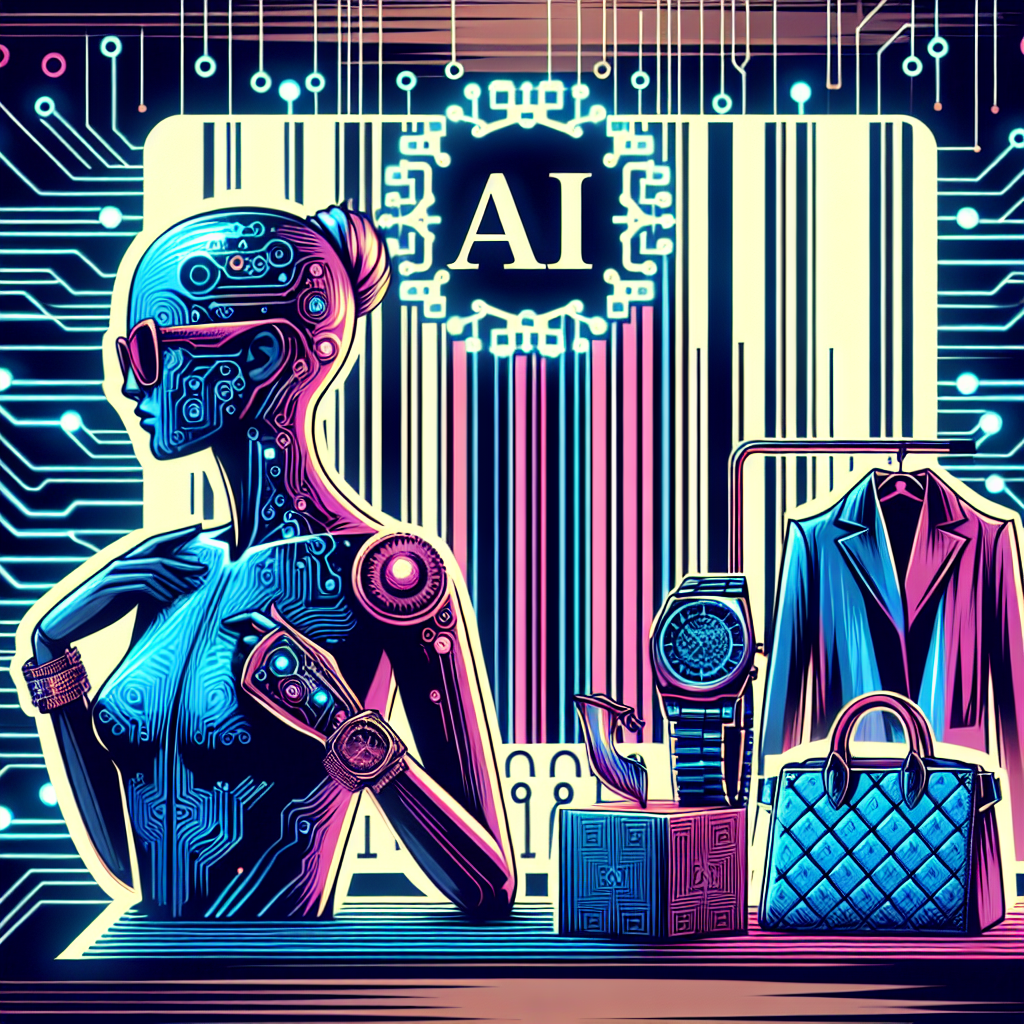The Impact of AI on Fashion Branding and Marketing Strategies
Artificial intelligence (AI) has revolutionized the way businesses operate in various industries, and the fashion industry is no exception. From personalized shopping experiences to trend forecasting, AI technology has transformed the way fashion brands interact with consumers and market their products. In this article, we will explore the impact of AI on fashion branding and marketing strategies, and how brands can leverage this technology to stay ahead of the competition.
Personalized Shopping Experiences
One of the most significant ways AI is impacting fashion branding and marketing strategies is through personalized shopping experiences. AI algorithms analyze customer data such as browsing history, purchase behavior, and social media interactions to create personalized recommendations for each individual. This allows fashion brands to tailor their marketing messages and product offerings to meet the specific needs and preferences of each customer, ultimately increasing customer engagement and loyalty.
For example, online fashion retailer Stitch Fix uses AI algorithms to recommend personalized clothing items to customers based on their style preferences, body type, and budget. This approach not only enhances the customer shopping experience but also increases the likelihood of repeat purchases and customer satisfaction.
Trend Forecasting
AI technology has also revolutionized trend forecasting in the fashion industry. By analyzing vast amounts of data from social media, fashion blogs, and e-commerce websites, AI algorithms can identify emerging trends and predict future fashion trends with a high degree of accuracy. This allows fashion brands to stay ahead of the curve and create products that resonate with consumers.
For example, luxury fashion brand Gucci uses AI-powered trend forecasting tools to analyze social media data and identify emerging trends in real-time. This allows the brand to quickly adapt its product offerings and marketing strategies to align with current trends, ultimately driving sales and brand awareness.
Supply Chain Optimization
AI technology has also had a significant impact on supply chain management in the fashion industry. By using AI algorithms to analyze historical sales data, consumer trends, and inventory levels, fashion brands can optimize their supply chain processes to reduce costs, minimize waste, and improve efficiency.
For example, fast fashion retailer Zara uses AI-powered demand forecasting tools to predict future sales volumes and optimize its production and inventory management processes. This allows the brand to minimize stockouts, reduce excess inventory, and improve overall supply chain performance.
Social Media Marketing
AI technology has transformed social media marketing for fashion brands, allowing them to create more targeted and personalized marketing campaigns. By analyzing customer data and social media interactions, AI algorithms can identify key influencers, trends, and customer segments to target with tailored marketing messages.
For example, fashion brand Adidas uses AI-powered social media analytics tools to identify key influencers in the fitness and fashion industries. The brand then partners with these influencers to create sponsored content that resonates with their target audience, ultimately driving brand awareness and engagement.
Customer Service
AI-powered chatbots have revolutionized customer service for fashion brands, providing 24/7 support to customers and resolving queries in real-time. By using natural language processing and machine learning algorithms, chatbots can understand customer inquiries, provide personalized recommendations, and offer assistance with product selection and sizing.
For example, online fashion retailer ASOS uses AI-powered chatbots to provide personalized styling advice to customers based on their preferences and purchase history. This not only enhances the customer shopping experience but also increases customer satisfaction and loyalty.
FAQs
1. How can fashion brands leverage AI technology to create personalized shopping experiences for customers?
Fashion brands can leverage AI technology to create personalized shopping experiences by analyzing customer data such as browsing history, purchase behavior, and social media interactions. By using AI algorithms to create personalized recommendations and tailored marketing messages, brands can enhance the customer shopping experience and increase customer engagement and loyalty.
2. How does AI technology impact trend forecasting in the fashion industry?
AI technology impacts trend forecasting in the fashion industry by analyzing vast amounts of data from social media, fashion blogs, and e-commerce websites to identify emerging trends and predict future fashion trends with a high degree of accuracy. This allows fashion brands to stay ahead of the curve and create products that resonate with consumers.
3. How can fashion brands optimize their supply chain processes using AI technology?
Fashion brands can optimize their supply chain processes using AI technology by analyzing historical sales data, consumer trends, and inventory levels to reduce costs, minimize waste, and improve efficiency. By using AI algorithms to predict future sales volumes and optimize production and inventory management processes, brands can improve supply chain performance.
4. How has AI technology transformed social media marketing for fashion brands?
AI technology has transformed social media marketing for fashion brands by allowing them to create more targeted and personalized marketing campaigns. By analyzing customer data and social media interactions, AI algorithms can identify key influencers, trends, and customer segments to target with tailored marketing messages, ultimately driving brand awareness and engagement.
5. How have AI-powered chatbots revolutionized customer service for fashion brands?
AI-powered chatbots have revolutionized customer service for fashion brands by providing 24/7 support to customers and resolving queries in real-time. By using natural language processing and machine learning algorithms, chatbots can understand customer inquiries, provide personalized recommendations, and offer assistance with product selection and sizing, ultimately enhancing the customer shopping experience.
In conclusion, AI technology has had a profound impact on fashion branding and marketing strategies, enabling brands to create personalized shopping experiences, forecast trends, optimize supply chain processes, enhance social media marketing, and improve customer service. By leveraging AI technology, fashion brands can stay ahead of the competition and drive sales and brand awareness in an increasingly competitive industry.

